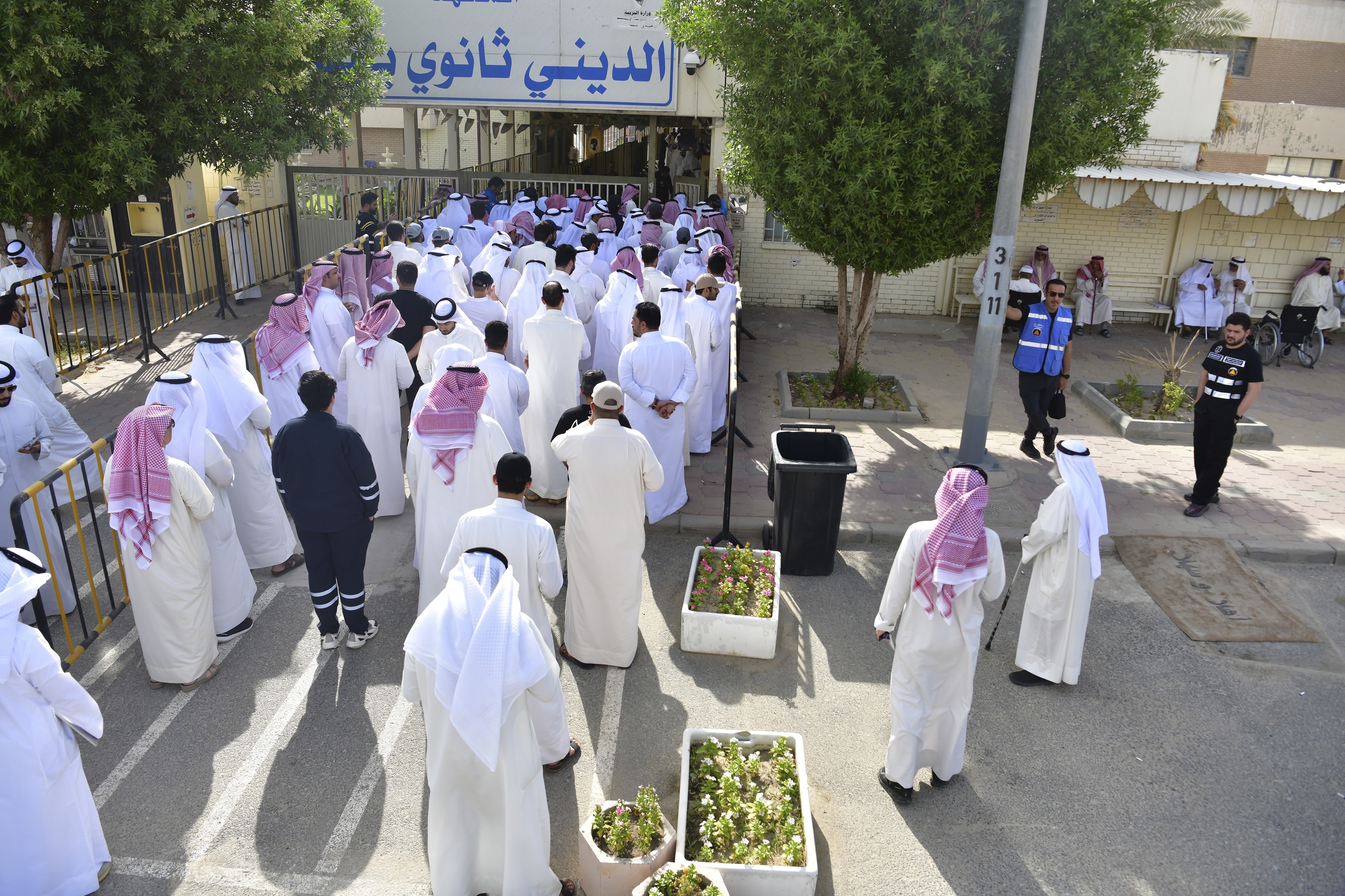
Opposition lawmakers have nabbed the majority of seats in Kuwait’s parliament, in the Gulf country’s third election in the last three years.
Tuesday’s snap election took place amid a long-running political crisis that has seen parliament repeatedly dissolved due to a feud between the government and lawmakers that has hampered fiscal reforms.
The new parliament nearly mirrors the one elected last year that had a majority opposition presence. According to the results announced on Wednesday by the official Kuwait News Agency, opposition politicians won 29 of the legislature’s 50 seats, and 37 lawmakers retained their seats.
“What that essentially means is Kuwait’s politics are still in deadlock and are not going to move,” said Al Jazeera’s Rob Matheson, reporting from Kuwait City.
Voter turnout in the election was low, at just 51 percent, indicating the level of dissatisfaction Kuwaitis have with the current political process, Matheson also said.

The election was called after Kuwait’s constitutional court in March annulled the results of last year’s vote, and then restored the previous 2020 assembly. However, on May 1, the crown prince dissolved the reinstated 2020 assembly.
The country’s National Assembly has more influence than in other Gulf monarchies, challenging the executive branch at times.
A total of 207 candidates, a 10-year low, competed for the 50 seats in five constituencies. The remaining 15 seats in the assembly are reserved for the appointed cabinet.
Just one woman was elected, opposition candidate Jinan Boushehri, who was a member of the annulled 2022 assembly that had two women lawmakers.
Former parliament speaker Marzouq al-Ghanim was also re-elected to the assembly. The influential politician representing the country’s business community has been critical of Kuwait’s incumbent prime minister, Sheikh Ahmad al-Nawaf al-Ahmad al-Sabah, the son of the current emir.
The country’s political gridlock has led to the decay of social services such as healthcare and education. Despite holding one of the world’s largest oil reserves and having a strong fiscal and external balance sheet, the turmoil has stalled much-needed investments and reforms.
“The authorities in Kuwait must cooperate to create political stability … Lack of cooperation between the authorities will be reflected negatively internally and externally,” Abdul Wahid Khalfan, a Kuwaiti political analyst, told Al Jazeera.







